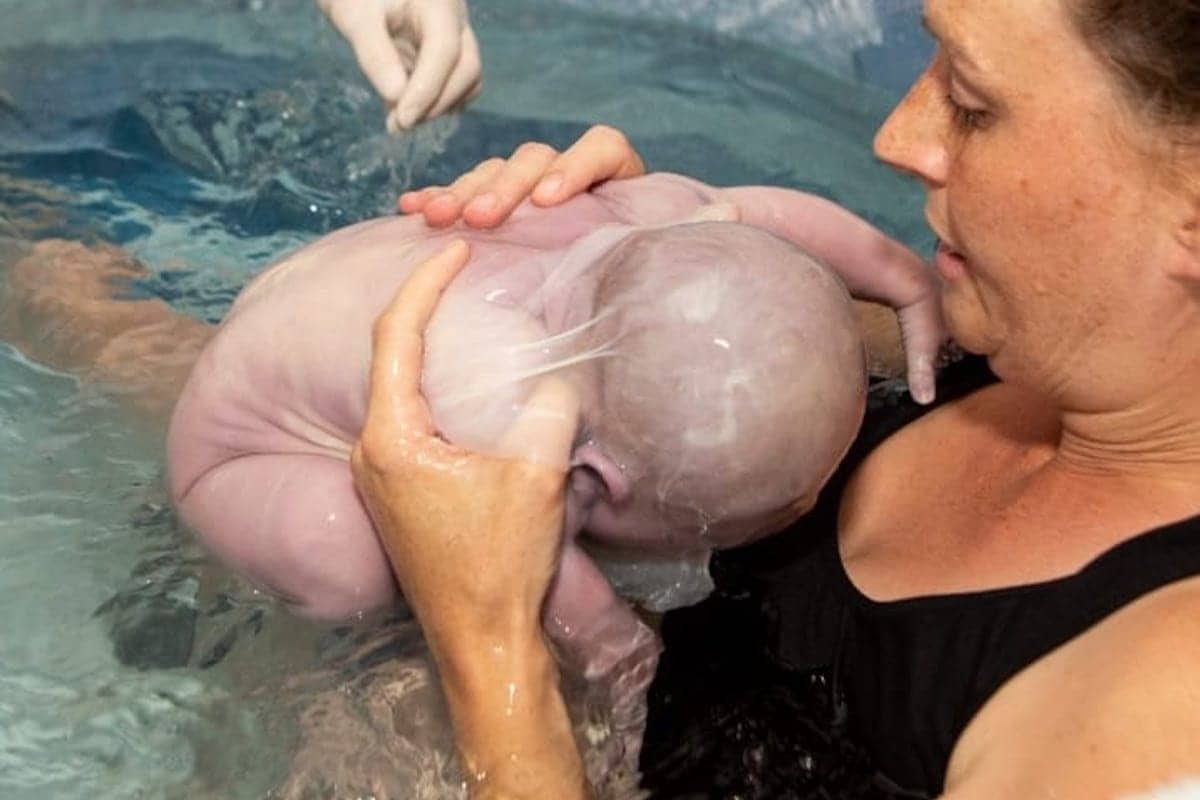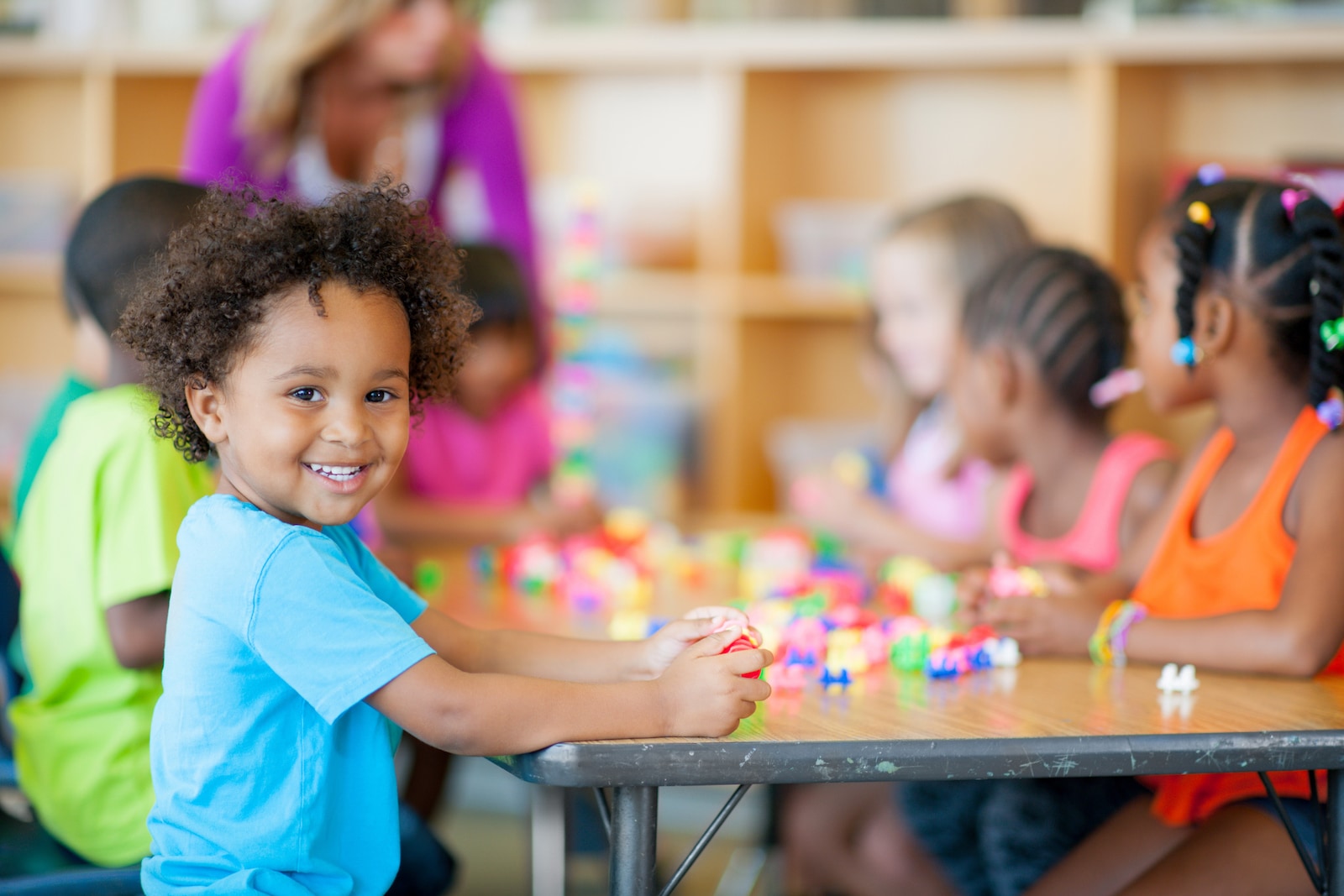In this article
Conversations surrounding mental health have always been critical, but the need for openness about and support for mental health issues is greater than ever. “Professionals are seeing unprecedented demand for services,” says Lisa R. Savage, licensed clinical social worker and founder of The Center for Child Development. “Children and teens are struggling. Parents express feelings of helplessness because they, too, are having issues.”
In 2021, the American Academy of Pediatrics (AAP), the American Academy of Child and Adolescent Psychiatry (AACAP) and the Children’s Hospital Association (CHA) joined together to declare a National Emergency in Child and Adolescent Mental Health. In the years since, it seems mental health struggles are everywhere. I myself have even dealt with them. After giving birth to my first child in March 2020, I suffered from perinatal anxiety and occasional panic attacks. I also have an anxiety disorder and newly diagnosed attention-deficit/hyperactivity disorder (ADHD).
The question for many parents, myself included, is how and when to talk to children about mental health. How do we normalize mental health conversations as children grow? Here, experts provide tips and advice for how to begin the conversation about mental health with kids — from babyhood to every age thereafter.
Key takeaways
- It’s never too early to lay the foundation for helping kids understand and navigate mental health, experts say.
- Use basic emotion descriptions, like happy, sad, mad or worried, to help kids develop the language to talk about their needs and emotions.
- Research shows that the most resilient kids are those that have a caring, supportive caregiver.
What is mental health?
Mental health is the state of your psychological and emotional wellbeing. It relates to how you feel, but also how you interact with others and how you’re able to show up in your life, work and relationships each day.
“Everyone has mental health, including infants,” says Jennifer Vallin, clinical psychologist and licensed marriage and family therapist. “And it is never too early to lay the foundation of emotion and thought awareness and management. The sooner you start, the more common and normalized it becomes.”
“It is never too early to lay the foundation of emotion and thought awareness and management. The sooner you start, the more common and normalized it becomes.”
— Jennifer Vallin, clinical psychologist and licensed marriage and family therapist
These early conversations primarily revolve around parents being emotionally responsive to the needs of their infants, says Deborah Farmer Kris, a child development expert and author of several books for kids, including “You Have Feelings All the Time.” “Those early interactions are our kids’ first mental health conversations.”
Why it’s important to talk to kids about mental health
Growing up in my family, we never discussed mental health, but being able to talk about mental health with my son is imperative for me as a parent — and I am not alone.
Nicole Slaughter Graham, a parent of a 5- and 15-year-old in St. Petersburg, Florida, says it’s incredibly important to be able to talk about mental health with her sons. “I want my children to grow up with the tools they need to navigate their own mental health concerns,” she says. “I also want them to have empathy for the experience of others.”
As a mom with a generalized anxiety disorder and who also suffered from postpartum depression and anxiety, Slaughter Graham hopes that talking openly about her mental health will help her kids “navigate their own and support their friends and loved ones.”
Other parents echo the same sentiment: It’s important to talk openly to kids in order to better equip them to deal with the emotional obstacles that will inevitably crop up in their lives.
“Raising children to be aware and well-versed in matters of mental health is key to helping them understand themselves and develop healthy coping mechanisms for any issues that may arise in their lives or any struggles they may be predisposed to,” says Priscilla Blossom, a Denver mom, who lives with a generalized anxiety disorder and post-traumatic stress disorder (PTSD).
But how do we start this conversation if we never learned the language in our own homes growing up?
“Just as we share physical health histories, parents need to share mental health histories.”
— Lisa R. Savage, licensed clinical social worker
How to talk to kids about mental health
Despite not learning this skill as children ourselves, we can certainly learn how to talk about mental health now and with our kids. According to experts, here are a few key places to start.
1. Own your own struggles
The first step for parents learning to discuss mental health is to turn inward and accept your own mental health struggles, says Savage. “Once we own our struggles, it becomes easier to be open with others.”
“Just as we share physical health histories, parents need to share mental health histories,” Savage continues. “Children are intuitive, and so, while adults might not realize it, they pick up on things that are not necessarily spoken out loud. Therefore, it is essential to name it for them.”
Savage suggests sharing even something as simple as this: “Sometimes I get nervous about something. I want you to know I am OK when that happens. You don’t need to take care of me. I can still take care of you when I’m feeling this way. It doesn’t last forever, but it comes and goes.”
2. Give them the language
“Help [kids] build an emotional vocabulary,” says Farmer Kris. “That way, when they have emotional reactions, they have a language to talk about it with you.”
A simple way to start using kid-friendly words to talk about mental health is to identify how your body feels because of the emotion, says Vallin. Ask: Do you feel good or not so good in your body? There are two categories to start with: “Feels good / Comfortable / Like the feeling” or “Feels not so good / Uncomfortable / Do not like the feeling.”
Farmer Kris agrees, naming an acronym she made up to help kids identify when and why their stress may be rising: fireHOSE.
- Am I Hungry?
- Am I Overstimulated?
- Do I get enough Sleep?
- Do I need to Exercise or move my body?
But “try not to label uncomfortable feelings as bad or negative,” says Vallin. “Children try and avoid doing things that are bad or negative. Instead, normalize the experience as something that doesn’t feel good or uncomfortable.”
Remember: All emotions and feelings are OK, she says. “We want to feel and express all our emotions. As parents or caregivers, we want to encourage the expression and then coach the child in how to express/manage it in a helpful/healthy way.”
“Capitalize on everyday moments to build awareness that emotions and feelings are normal and are around all the time, not just in the extremes.”
— Jennifer Vallin
3. Help them name their feelings
“Young kids have limited expressive language skills, so caregivers also need to ‘listen’ to their child’s behavior for clues and to help them name their feelings,” says Farmer Kris. “If you don’t know where else to start, go to the library and check out some emotions books. There are so many good books for every age. A children’s librarian can help you find them!”
Her latest, “You Have Feelings All the Time,” is a good place to start — but other books include “F is for Feelings” and “Big Boys Cry.”
4. Start with simple feelings
“When you feel happy, relaxed or calm, ask your child to tell you a story about a time they felt an emotion,” says Vallin. “Capitalize on everyday moments to build awareness that emotions and feelings are normal and are around all the time, not just in the extremes.”
Her example? When someone is crying on TV, have kids describe what the person may be feeling, why they are crying or how they themselves physically feels when crying.
How to explain mental health to a child at every age
If you’re still not sure where to start or what the appropriate language may be for your little or bigger kids, keep reading for expert tips on discussing mental health with toddlers, school-age kids and tweens or teens.
Toddlers
- Start now: “Start early on in life helping little ones to understand and express their feelings,” says Savage.
- Keep it age-appropriate: “Be mindful of where your child is developmentally, educationally, emotionally and their level of maturity,” adds Savage. “It’s possible to give children more information than what they can process.”
- Engage in action and play: “Use basic emotion descriptions, like happy/sad/mad/worried and reassurance that the emotions are valid,” says Vallin. For example, match their sad face and say, “You’re feeling sad because it’s time for a nap.”
- Support them always: “One of the most important messages we can give kids is ‘I love you all the time, and I’m here to help you when you don’t feel good in your body or in your brain’,” says Farmer Kris. “Research shows that the most resilient kids are those that have a caring, supportive caregiver.”
School-age kids
- Address feelings at the moment: “If my son is clearly anxious about something (like starting a new class), I help him figure out what those feelings are so we can name them, and then come up with coping mechanisms together,” says Blossom. “If he’s having a tantrum, I try to help him figure out the root of where it’s coming from so we can come up with a plan to feel better. And I always remind him that I love him, I’m there for him, and that he can talk to me about anything.”
- Practice using an emotion vocabulary: When a child is having a big emotion, Vallin recommends naming and validating it. “Label the emotion,” she says, “and repeat back, when possible, that you understand their experience.” An example: You are feeling sad because your friend is moving away.
- Explain that feelings don’t last forever: “If a child has anxiety, a parent can explain that there will be times when they feel nervous.” Savage suggests saying something like, “Sometimes that nervousness seems to come out of the blue. It can be scary. But it doesn’t last forever.” Reassure children throughout this process, she adds, so that they know that, with help, they can learn to better manage their brains.
Tweens and teens
- Normalize talking about mental health. “Give your older child permission to chat with you about mental health,” Savage says. The more often it comes up organically and without judgment, the easier it will be, especially when they have issues themselves.
- Make sure they have accurate information: Although tweens and teens may be familiar with terms like “anxiety” or “depression” or have friends who have mental health issues, Savage says that they can have incorrect information. “You can give them accurate information at the same time and normalize conversations about mental health.”
- Tune in to non-verbal cues: For example, “If your tween rolls their eyes,” says Vallin, you can use that moment to say: “‘You seem really annoyed with me right now. Is there anything you would like to talk about?’”
- Listen and validate their feelings; don’t try to change them: “Continue to reflect emotions through spoken and unspoken cues,” says Vallin. “Talk to them openly about factors that affect mental health: friendships, social media, school pressure, body image, hormones, body changes and even genetics.”
- Check-in with on how they are feeling: Even when your child is an adult, they are still your child and they still need you to listen and reflect that you heard them, says Vallin. “Encourage them to share even if it’s hard.” Something as simple as, “you sound stressed. How are you feeling?” can be a great conversation starter.





